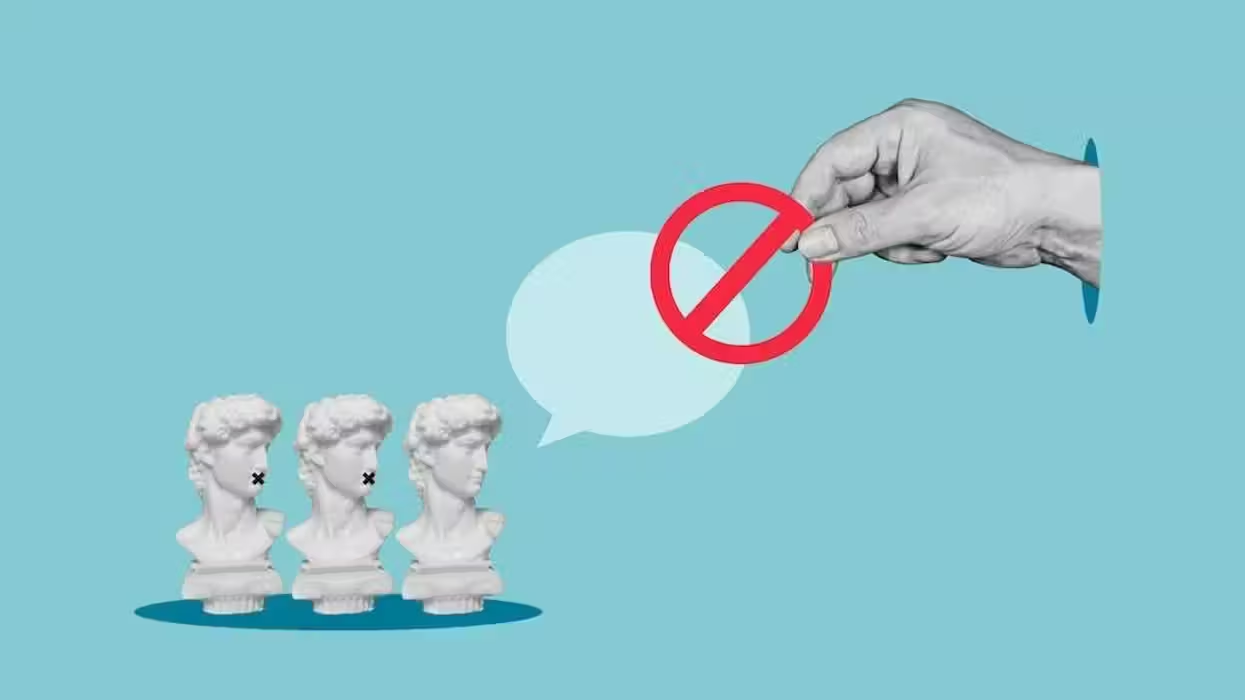
© 2026 Blaze Media LLC. All rights reserved.
Are You ‘Lovin’ It’? Popular Fast-Food Chain Takes on Perceived Ick Factor in Its Food
October 14, 2014
"Gross!"
NEW YORK (TheBlaze/AP) — While McDonald's has joined the bandwagon of fast-food restaurants offering healthier menu options, this week it began opening up about how some of its most popular items are made in order to help dispel misconceptions about its food.
We'll just put this one out there: "Does McDonald's beef contain worms?"
"No. Gross! End of story," was the answer to this question.
 McDonald's launched a transparency campaign this week to answer its customers' questions about its food. (Photo credit: Rob Wilson/Shutterstock)
McDonald's launched a transparency campaign this week to answer its customers' questions about its food. (Photo credit: Rob Wilson/Shutterstock)
The world's biggest hamburger chain teamed up with skeptical mind Grant Imahara, one of the former hosts of the TV show "Mythbusters," to answer unappetizing questions such as this one as part of a U.S. campaign to beat back perceptions that it serves Frankenfood, especially after the "pink slime" debacle a few years ago.
The push comes as McDonald's fights to boost its performance in the U.S., where sales slid 1.5 percent at established locations in the most recent quarter, following a 0.2 percent dip for last year. In addition to increased competition, McDonald's is trying to keep up with changing tastes, with places such as Chipotle marketing their food as more wholesome alternatives.
For its latest campaign, among the first issues McDonald's addresses are widely circulated online images and videos that show its burgers staying in tact after several weeks or even years. On its Web page, McDonald's says that's likely because the food has dehydrated, and that food needs moisture to form mold.
 McDonald's first tackled questions about how its meat is made, why its burgers are so cheap and why its patties are frozen. (Image source: YouTube)
McDonald's first tackled questions about how its meat is made, why its burgers are so cheap and why its patties are frozen. (Image source: YouTube)
In a video released by McDonald's, Imahara toured a Cargill beef plant where McDonald's patties are made.
"Are there lips and eyeballs in there, Jimmy?" Imahara asks a plant supervisor, who explains that the patties only have beef trimmings. Another guide says the patties do not contain lean finely textured beef, an ingredient widely referred to as "pink slime." McDonald's stopped using the ingredient about three years ago.
Here's the video:
Want to know why the burger's are so cheap? Here's your answer:
Time pointed out that McDonald's self-imposed transparency might be leaving some information out as well, though the campaign has just begun:
And while it says it no longer uses so-called “pink slime” in its burgers, it does use an anti-foaming agent, dimethylpolysiloxane, in the oil it uses to cook Chicken McNuggets. It also uses azodicarbonamide, AKA “the yoga mat ingredient,” in its buns and sandwiches, saying it has many uses: “Think of salt: the salt you use in your food at home is a variation of the salt you may use to de-ice your sidewalk.” As for why its U.S. menu contains items that are banned in Europe? “Every country has different food safety and regulatory standards and, because of this, ingredients will vary in our restaurants around the world. But no matter where you’re dining with us—in the U.S. or abroad—you can be assured of the quality and safety of our food.”
Ben Stringfellow, vice president of communications for McDonald's USA, said the campaign is a new way of engaging with customers more directly. He noted people are demanding for more information about products across the board, not just from McDonald's.
“In today’s 24/7 news cycle, people are looking for faster, more straightforward responses to their questions about our food,” Stringfellow said in a statement on the company's website. “We have great information to share and we’re looking forward to engaging in two-way conversations with as many people as possible.”
National TV ads began airing Monday letting people know about the push. McDonald's says people can submit questions via social media sites such as Twitter and Facebook. The company plans to respond to the most common questions with videos or other posts, as well as responding one-on-one to questions, Stringfellow said.
Laura Ries, a marketing consultant based in Atlanta, noted McDonald's risks bringing up unappetizing thoughts some people may never have heard about.
"I didn't know people thought there were worms in its beef, or that they didn't use real chicken," Ries said.
Still, she agreed that companies have to be more responsive to questions from customers, especially at a time when people can amplify their concerns and criticisms to bigger audiences on social media.
Want to leave a tip?
We answer to you. Help keep our content free of advertisers and big tech censorship by leaving a tip today.
Want to join the conversation?
Already a subscriber?
more stories
Sign up for the Blaze newsletter
By signing up, you agree to our Privacy Policy and Terms of Use, and agree to receive content that may sometimes include advertisements. You may opt out at any time.
Related Content
© 2026 Blaze Media LLC. All rights reserved.
Get the stories that matter most delivered directly to your inbox.
By signing up, you agree to our Privacy Policy and Terms of Use, and agree to receive content that may sometimes include advertisements. You may opt out at any time.






